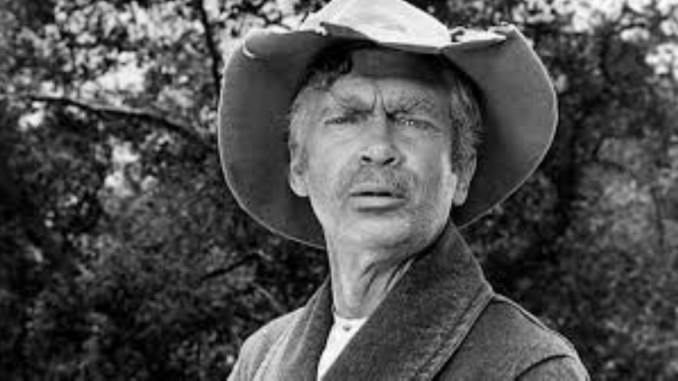
Retirement, for many people, represents a long-awaited destination — a place of rest after years of labor. It’s the point where savings, planning, and sacrifice finally converge into the promise of leisure. But for Buddy Ebsen, the beloved actor who became a household name as Jed Clampett on The Beverly Hillbillies, the very idea of retirement held no appeal. For him, work was never just work — it was a calling, a joy, and the very essence of life.
Ebsen’s career spanned more than six decades, bridging eras and genres in Hollywood. He began as a dancer in the 1930s, performing alongside Shirley Temple, and later transitioned into a successful acting career that took him from musicals to television dramas. His resume was a patchwork quilt of American entertainment history: Disney films, Broadway stages, prime-time comedies, and crime dramas.
But perhaps the role that etched him most deeply into the public imagination was Jed Clampett, the gentle, wise patriarch of The Beverly Hillbillies. Ebsen’s portrayal was a cornerstone of the sitcom’s charm, a mix of sincerity, humor, and homespun wisdom that resonated with millions of viewers. Later, he reinvented himself yet again as the methodical investigator Barnaby Jones, proving his ability to adapt and thrive in completely different genres.
By 1984, Ebsen was 76 years old — an age when most people are long retired and enjoying quiet days. But when asked about slowing down, he dismissed the notion outright. In an interview with the Scripps-Howard News Service, Ebsen explained his philosophy with the help of a lyric from the Broadway song September Song from Knickerbocker Holiday.
“There’s a line in that song which expresses why I never will retire,” he said. “‘Those few golden days I’ll spend with you.’”
For Ebsen, those “golden days” weren’t meant to be spent in idle leisure but in the service of an audience. Performing wasn’t a burden; it was the heartbeat of his existence. Dancing had once taken a toll on his body, and acting came with long, demanding hours, but he embraced the sacrifices willingly. Entertainment wasn’t just his profession — it was his purpose.
“Maybe one of these days I’ll die on stage or in front of a TV camera,” he remarked, half in jest but fully in earnest. “But retire? That wouldn’t be any fun.”
That sentiment defined Ebsen’s remarkable longevity. His career trajectory wasn’t fueled solely by talent but by a relentless desire to keep going, to keep creating, to keep engaging with audiences. For him, the end of work would have felt like the end of life itself.
Buddy Ebsen’s refusal to retire is a reminder that passion can outlast age, that joy can be found in continuing to do what you love, and that fulfillment doesn’t always come from stepping away. In an industry often obsessed with youth and novelty, Ebsen embodied endurance, resilience, and an unwavering belief in his craft.
Whether audiences remember him as a song-and-dance man, a hillbilly patriarch, or a shrewd detective, one truth remains clear: Buddy Ebsen never slowed down, because he never wanted to.
And in that choice, he left behind not just a career but a legacy — one built on the simple conviction that life is richest when it’s lived doing what you love.
